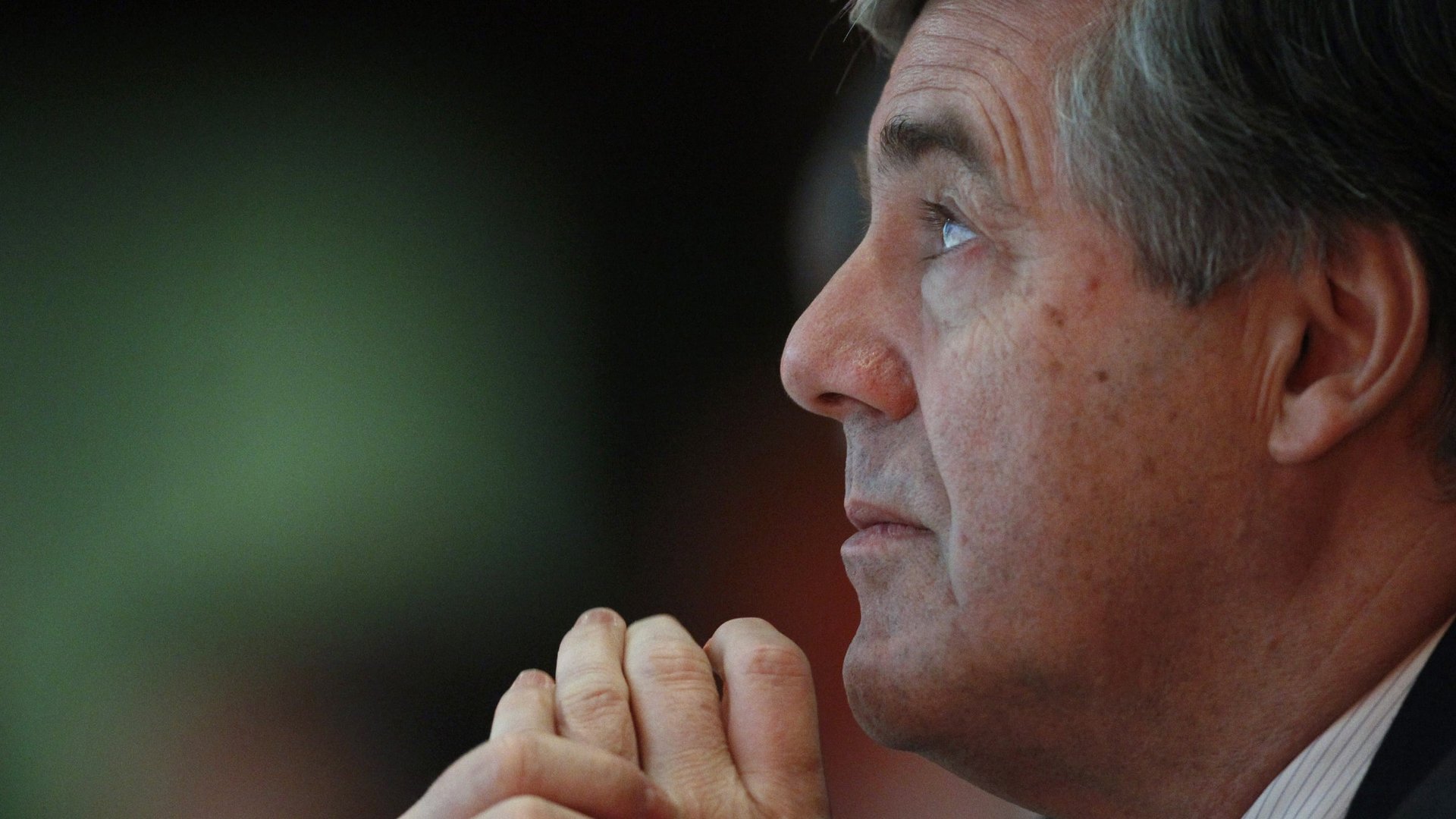The suicide note that’s making things uncomfortable for former Deutsche Bank CEO Josef Ackermann
New details are emerging about the suicide of Pierre Wauthier, the 53-year old CFO of Zurich Insurance, that can only be bad for Josef Ackermann, his boss and the former CEO of Deutsche Bank. After Wauthier took his own life last week Ackermann promptly resigned as Zurich’s chairman, saying it was because Wauthier’s family was blaming him—an explanation that seemed dubious to some. Now, various reports published over the last 24 hours have revealed a troubled relationship between the two men.


New details are emerging about the suicide of Pierre Wauthier, the 53-year old CFO of Zurich Insurance, that can only be bad for Josef Ackermann, his boss and the former CEO of Deutsche Bank. After Wauthier took his own life last week Ackermann promptly resigned as Zurich’s chairman, saying it was because Wauthier’s family was blaming him—an explanation that seemed dubious to some. Now, various reports published over the last 24 hours have revealed a troubled relationship between the two men.
1. Wauthier blamed changes in management style when Ackermann joined the company in March 2012.
Ackermann has been credited with transforming Deutsche Bank from a local bank into a global investment banking powerhouse during his tenure as CEO from 2002 to 2012. These changes came with a shake-up; he cut the bank’s retail banking division by 19% and made risky—if ultimately effective—gambles with the bank’s investment strategy.
It would seem that he brought a similarly ambitious, but divisive mentality to Zurich Insurance. According to a source cited by Tages-Anzeiger, a Swiss German-language newspaper, Ackermann thought of Zurich as a “slightly dusty place full of officials that needs to be put into shape.”
2. Zurich’s poor performance angered Ackermann, and led to discord with Wauthier.
With 5.54% market share, Zurich is the second-largest provider (pdf) of property and casualty insurance in the US (the leader is State Farm). But that position is fragile; both Liberty Mutual and Allstate boast market share higher than 5%. And Zurich missed analysts’ profit expectations in three of the last four quarters.
Ackermann, with his investment-banking background, was meant to shake things up at the cautious and slow insurance firm. But he immediately encountered resistance, including from Wauthier.
For example, the Wall Street Journal reports (paywall) that in an update last month to investors, Wauthier wanted to emphasize how far the firm had progressed towards three-year goals set back in 2010. Ackermann, instead, wanted to publicly criticize Zurich’s performance, saying that the company had not accomplished enough.
3. Wauthier’s suicide note singled out Ackermann specifically.
The CFO’s body was discovered by police on Monday, August 26, when he didn’t show up for work. According to the Wall Street Journal, Ackermann called a meeting of Zurich’s board of directors the next day. During the meeting, he read Wauthier’s suicide note, which repeatedly heaped blame on Ackermann and his tough management style. Ackermann was apparently deeply affected, and wouldn’t respond to directors’ phone calls after the meeting adjourned.
When the meeting commenced the next afternoon, Ackermann dropped a bombshell: he announced his resignation, effective immediately.
4. Zurich’s board members did not want Ackermann to go.
Directors reportedly feared that Ackermann’s resignation would erode confidence in the company. Since the scandal broke, they have publicly denied knowledge of any bad blood between the late CFO and the former chairman.
“The death of Pierre Wauthier and the resignation of Joe Ackermann have tarnished the very good reputation Zurich, without question,” Zurich CEO Martin Senn told Swiss weekly paper NZZ am Sonntag last weekend. “The resignation of Ackermann was a personal decision. We have to accept that.”
5. The scandal raises questions about Ackermann’s legacy.
At 65 years old, Ackermann is widely considered a titan of European finance. His stint as the chairman of the Institute of International Finance (IIF) meant he was close to negotiations that have shaped the future of Europe. For example, he was influential in talks between Greece and its debtors during the country’s financial crisis and default.
Ackermann remains on the boards of various European powerhouses, including Siemens and Royal Dutch Shell. Analysts who have followed Deutsche Bank believe that Ackermann’s connections and past successes speak for themselves, although the scandal could limit the number of companies willing to take him on. For his part, Ackermann has said he isn’t ready to retire completely, but it’s not clear what toll Wauthier’s suicide has taken on his personal state of mind.